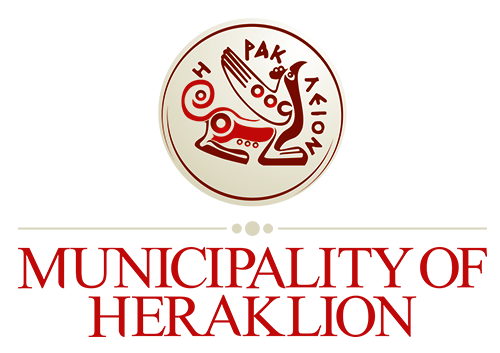Why Heraklion
Heraklion is the capital of Crete and one of the Mediterranean region’s most fascinating and vibrant cities. It is the fourth largest city in Greece with a municipal population of 177,064 (2021) and more than 211,000 in its wider metropolitan area. The city’s main economic sectors are trade, tourism, agriculture, livestock, and industry. Heraklion has an industrial area and one of the busiest airports in Greece today (second only to Athens and first in charter flights). It also has a port with a busy ferry service, mainly to Piraeus, Santorini, and other Greek islands. Heraklion hosts two universities and the largest research center/ institute in Greece. Thus, Heraklion shows remarkable potential in research and innovation, and its increasing business and economic support infrastructure leading to successful research commercialization, particularly in the fields of Information & Commu-nication Technology (ICT) and biotechnology.
The city of Heraklion grapples with multi-level governance challenges related to tourism. Despite national and re-gional promotion of Crete as a tourism destination due to the island’s economic dependence on this sector, the reality in Heraklion is that the city serves as the main entry point with the local airport and port experiencing signif-icant traffic.
Recognizing the need for change, digital nomad visas were identified as an opportunity to shift Heraklion’s tourism model. However, regional authorities initiated a marketing campaign in 2020 promoting Crete as a destination for digital nomads, leading to an unexpectedly busy 2022 season. Despite this success, Heraklion remains committed to environmental goals, signing the Covenant of Mayors Planning for Energy and Planning to reduce CO2 emissions by 40% by 2030. Consequently, strategic actions are now crucial to support Heraklion in becoming a digital nomad destination while addressing challenges in the housing market.
At the national level, the Greek state has undertaken the Digital Nomad Visa initiative (Laws 4825/2021 and 5038/2023) to attract remote professionals to live and work in one of the world’s most spectacular destinations. The Digital Nomad Visa is available to non-EU nationals who a) are dependent employees or self-employed individ-uals working remotely for companies or clients located outside of Greece, and b) can prove a stable income of at least 3,500€ per month, which increases by 20% for a spouse and 15% per dependent child. The Greek Digital No-mad Visa is valid for a period of up to 12 months, but before its expiration, a digital nomad can apply for a Digital Nomad residence permit, with 2 years of validity (with an option of renewal).









